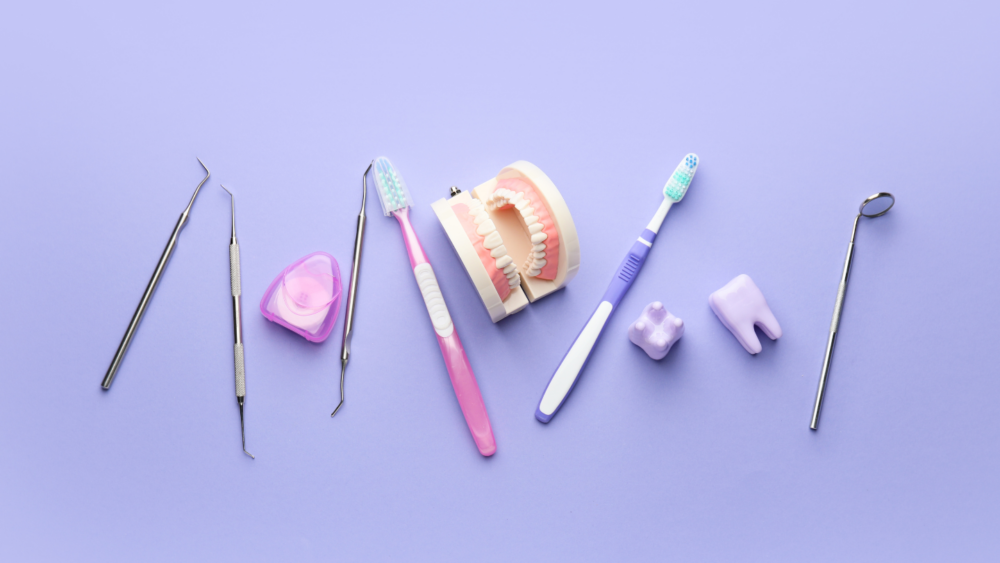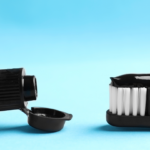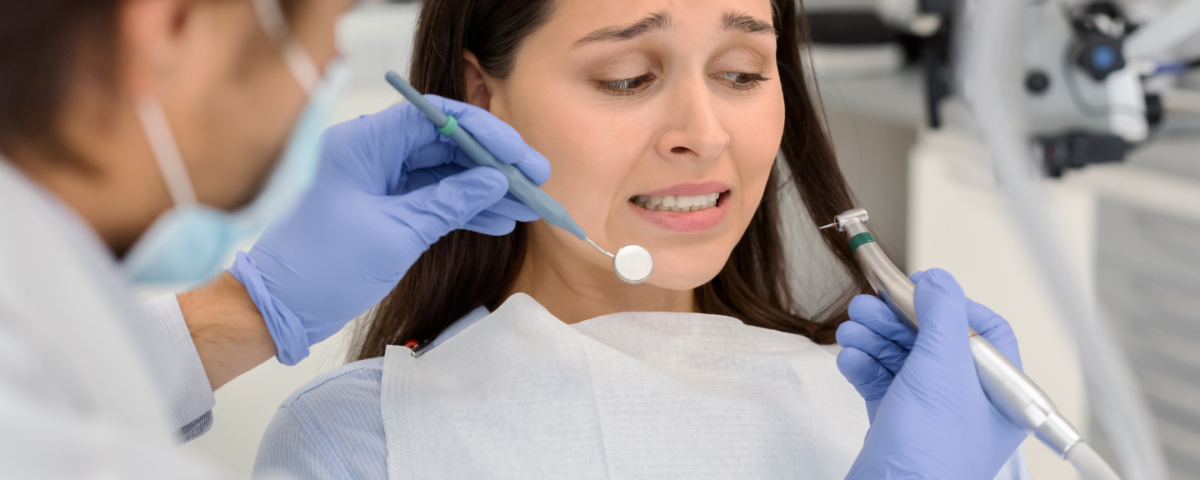
How To Improve Oral Health
May 22, 2023
Is Charcoal Toothpaste Safe?
June 22, 2023Key Takeaways:
Understanding Dental Anxiety vs. Phobia:
Dental anxiety can range from mild to moderate worry, while dental phobia is a more intense, irrational fear that may cause people to avoid care.
Sedation Options:
For patients with anxiety, two forms of sedation are available: inhaled sedation (nitrous oxide) and oral sedation (anti-anxiety pills).
Effective Calming Techniques:
Communication with the dentist is essential to easing anxiety. Techniques like controlled breathing, listening to music, and taking breaks during treatment can help patients remain calm and comfortable throughout their visit.
Does the thought of going to the dentist cause your heart to start racing and your palms to begin sweating? You share a common problem with as much as 36% of people. However, dental anxiety becomes a serious problem when the fear leads to avoidance of necessary dental care. Routine cleanings and exams are the backbone of dental treatment and help prevent major problems such as gum disease. They also identify dental issues before they become painful conditions that could put your health at risk.
Luckily, there are many ways how to get over dental anxiety. Use the following tips to help before and during your next dental appointment to make the process as smooth as possible.
1. Don’t Hide Your Fears
When making the appointment, let them know that you feel nervous about your visit, and they can alert the dentist before you arrive. Once in the chair, talk to the dentist about any concerns you have and your level of anxiety. They can work with you to find a solution to help you feel more comfortable throughout the appointment.
If you need a dental procedure performed, such as root canal therapy or an extraction, they may offer you medications to ease your anxiety. At Langley Dental Care, we offer both inhaled and oral sedation options for patients with severe anxiety.
Inhaled sedation uses nitrous oxide to help prevent gagging and relax the body. It is a safe method of in-office sedation that does not produce lasting effects. You can drive home once the nitrous oxide wears off.
Oral sedation requires a prescription for an anti-anxiety pill you take before your dental visit. These medications can help you to relax by working on the nervous system to ease anxiety. Because these medicines can last for several hours, have someone bring you to the dentist and take you home. You should not drive as long as the drug remains in effect, which could be for several hours.
2. Practice Relaxation Techniques Now
Even before your visit, you can start to practice relaxation methods to use while in the dentist’s chair. Deep breathing exercises used alone or combined with guided imagery can help you to focus away from your dental anxiety. Meditation may also help. Look for meditation or guided imagery apps to get started.
Getting into a habit of using these techniques before your dental visit will make it easier to do them when feeling anxious.
3. Bring a Friend
Don’t go to the dentist alone. Bring a friend to talk to and help you feel supported and at ease. Ask if your friend can sit with you in the exam room. Knowing that someone you trust is next to you in the dental office can help you to feel more relaxed and comfortable throughout your visit.
Having a friend with you also ensures that you have someone to get you home safely if you take anti-anxiety medicine before the visit.
4. Have Something to Listen to
Distract yourself by listening to something engaging. Music, podcasts, and audiobooks are great things to play in your earbuds during your dental visit. You’ll have something to focus your mind on other than the things you feel anxious about during the visit.
A bonus to listening to music during your visit is its ability to drown out the sounds of the dental drill and other tools, which some people find especially fear-inducing.
5. Take Breaks If Needed
Arrange a signal with the dentist before they start that you must take a break from the procedure. In most cases, you only have to raise a hand to alert the doctor that you want a break. When the dentist stops, take a moment to breathe deeply and recenter your thinking on something positive. Use pauses to calm yourself when you feel panic start to rise. By proactively requesting brief stops to calm yourself, you can keep your anxiety at bay long enough to complete the procedure.
6. Know Your Fears
What specifically do you fear at the dentist’s office? The answers often differ significantly among people with dental anxiety. Knowing your fears allows you to tailor the approach you take to your anxiety to address those. Common fears include the following:
- Fear of anesthesia side effects
- Embarrassment at the state of oral health, such as yellowed or missing teeth or bad breath
- Fear of pain
Some people fear the side effects of sedation or local anesthetics. They may severely dislike the numbness in their mouth that lasts for hours after local injection. Or, they may feel afraid of getting nauseous from other forms of sedation. Talking to the dentist about these fears can help them to find the right method of pain prevention for you. They can also help you to recognize the types of side effects that are common and which are not, so you know what to expect.
Many people with dental anxiety wait so long to go to the dentist that they feel embarrassed by their poor dental health. The dentist doesn’t care if you have bad breath. They are there to help you to fix problems so you can restore your oral health and get back on the path to having a healthy smile.
Finally, pain is a major concern for many. Taking over-the-counter pain medication before a dental procedure can reduce any pain felt. Ask the dentist about the best options to take before your procedure. During your visit, the dentist will work with you to ensure that you feel comfortable and pain-free throughout the procedure. With modern anesthetics, you should not feel pain at all at the dentist.
7. Talk to a Therapist
Finally, if your anxiety is severe, you should talk to a therapist who can work with you more intensely to help you to overcome it. Cognitive behavioral therapy methods and other psychotherapy techniques may help you to rethink your visit to the dentist.
Trust Our Caring Staff at Langley Dental Care to Help Ease Your Dental Anxiety as Much as We Can
Whether you haven’t been to a dentist in years, have an existing problem, or make regular appointments and still fear each one, we’re here to help you. Our team at Langley Dental Care wants to provide you with a soothing environment that can help you relax and get the dental care you need for a healthy smile. Contact us to schedule a visit, and let us help you to overcome your dental anxiety one visit at a time.



